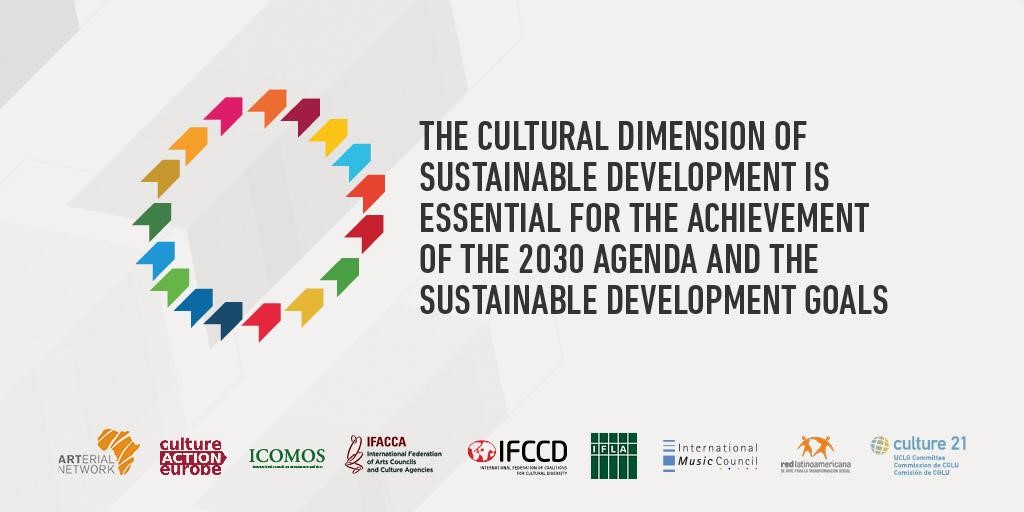Culture Essential for SDG Success: IFLA Contributes to New Report
24 September 2019
In the negotiations that led to the agreement of the 2030 Agenda in September 2015, a group of global organisations including IFLA drove the #culture2015goal campaign. This made the case for the recognition of – and support for – culture as a key pillar of sustainable development.
The result of this work was reference to culture as a cross-cutting factor of success, as well as inclusion in a number of individual Sustainable Development Goals.
Four years on, a new report, coordinated by the International Council on Monuments and Sites (ICOMOS) and United Cities and Local Government (UCLG) with support from IFLA, looks at progress in ensuring the place of culture at the heart of development policies.
The report notes that cultural factors can risk being seen as secondary to the other pillars of sustainable development – the economic, social and environmental. A lack of understanding of the difference it can make – and the difficulty in measuring this in hard numbers – can limit the emphasis it is given.
However, as the report underlines, many countries have nonetheless acknowledged how cultural development can accelerate progress elsewhere, providing for new jobs and growth, stronger social cohesion, and supporting climate change adaptation and mitigation.
Through a comprehensive analysis of Voluntary National Reviews (of countries) and Voluntary Local Reviews (of cities), it highlights great examples of governments that are giving culture the attention it deserves.
The challenge now is to take this good practice, and generalise it. To do so, the report makes a number of recommendations both to the culture field itself, and to Member States.
There is a need to do more to explain the connections between culture and development, including through new indicators that demonstrate the positive relationship. At the national and local levels, cultural actors can form wider and stronger partnerships, and be better involved in Voluntary Reviews, citing the good examples that already exist.
At the global level, the report underlines that it is time for a high-level meeting on culture in order to share with leaders the difference that cultural development can make. And finally, it calls for the #culture2015goal campaign to be reinvigorated as the #culture2030goal effort. Watch this space!
Download the report in PDF: "Culture in the Implementation of the 2030 Agenda"
